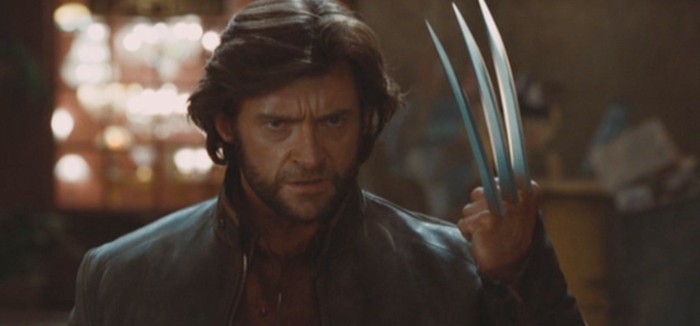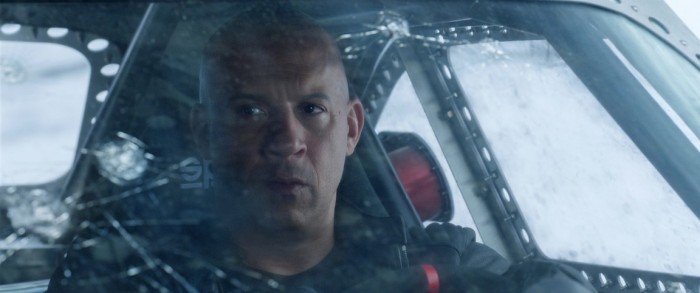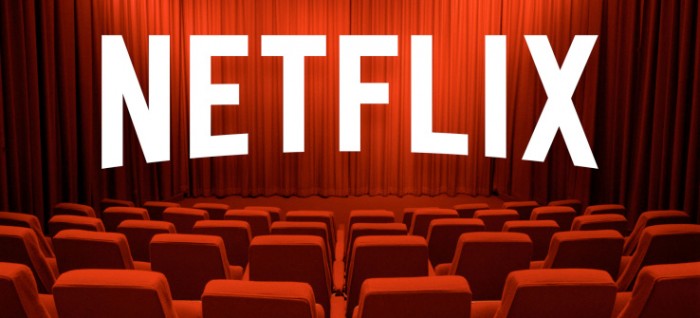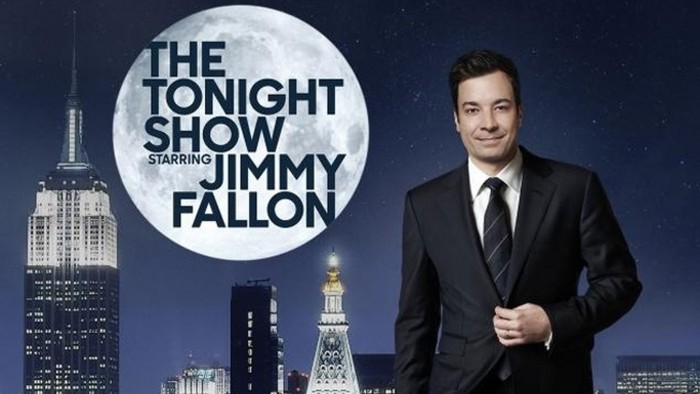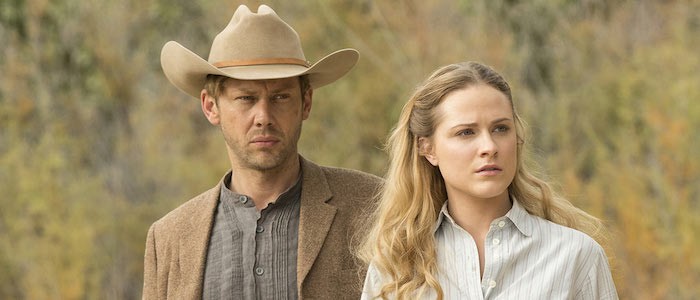How A Writer's Strike Could Impact Upcoming Films And TV Shows
With a May 2 negotiating deadline right around the corner, a push from plenty of writers via social media, and an overwhelming vote yesterday in favor of authorizing a strike, it's safe to assume that the Writers Guild of America (WGA) may again go on the picket line, aiming for fairer wages and a better health care plan. If you want more the details on why the guild is prepared to strike, we wrote a primer on everything you need to know.
WGA strikes aren't entirely uncommon: in the last 60 years, they've gone on strike four times, the longest one taking 155 days in 1988. Most recently, the WGA went on strike for 100 days between November 2007 and February 2008. Because the landscape of film and TV had changed drastically since the 1988 strike, the impact on audiences was felt a little bit more notably. Relative to the current situation, looking back at the 2007-08 strike may offer a peek into what we can expect as audience members, presuming that the WGA goes on strike again next week.
Film During the 2007-2008 Strike
In the world of film, there won't be an immediate impact for audiences. (You can breathe a sigh of relief now.) This summer's big new movies, from Guardians of the Galaxy, Vol 2. all the way through War of the Planet of the Apes and beyond, are either completely finished or in the late stages of post-production. Though many a summer movie gets rewritten on the fly while production commences, few (at most) would be rewritten this late in the process of locking the picture. Whatever changes have occurred in the past decade in the world of TV, there likely won't be a radical amount of difference between the decade-old WGA strike and the new one in terms of the impact on movies.
That's the good news. If, however, the last wave of famously affected strike-era films portends anything for the future, it's all bad news. Some of those earlier, strike-impacted films include Transformers: Revenge of the Fallen, X-Men: Origins – Wolverine, Land of the Lost, and G.I. Joe: The Rise of Cobra. Those films don't share much in common: most notably, they were all released in the summer of 2009, roughly 18 months after the end of the last WGA strike. (Something else these films share in common, though this is of course subjective: they are all very, very bad.) The silver lining within this list is that delay in timing: none of these films were recently anywhere near the end of the WGA strike in February 2008. With that in mind, it's probably accurate to assume that the earliest effect we might notice as audiences is in the summer of 2018, if not later.
If we look back three decades, there's a similar pattern at play; the most famously strike-affected film of that era was Tim Burton's Batman. That film was released in the summer of 1989, but had its original draft (by Sam Hamm) submitted just before the WGA went on strike in March of 1988. In the interim, Burton had other writers, including Warren Skaaren and Charles McKeown, come on board to update the story and spruce up some of the Joker's...jokes. Both Skaaren and McKeown were available for a simple reason: Batman was in production in Britain, whereas the majority of picketing writers were in the States. Batman, unlike the 2009-era examples, is rightly seen as a fine comic-book adaptation; either way, it does confirm that if we do see an impact, it's going to become apparent no earlier than next summer, if that.
Which Movies Could Be Affected by the Strike?
Considering what we know about some of next summer's releases – from Ant-Man and the Wasp to Mission: Impossible 6 – the WGA strike may not have an impact on big-budget films until closer to the end of 2018. (Some of the summer movies, including those aforementioned ones, are already in production. At worst, there would be on-the-fly rewrites during the middle of filming of the aforementioned examples.) And even then, there might be only one or two impacted films before the beginning of 2019. In 2008, less than a full year after the end of the strike, the only well-known release that seemed to struggle because of the WGA's decision was Quantum of Solace. (Which, again with the caveat that such things are subjective, is a badly written film.)
Thinking of the future, one example of a film that might get hamstrung because of the WGA strike would be Fast and Furious 9. Recently, Vin Diesel and Dwayne Johnson were able to move past whatever frustrations they had towards each other on the set of The Fate of the Furious, to agree to work together on the next entry, slated for release in April 2019. The same goes for another title zooming towards production: Captain Marvel, which recently had directors Ryan Boden and Anna Fleck attached, after last year's announcement that Brie Larson would play the title character. Perhaps the highest-profile movie that might be impacted from 2019 is the fifth entry in the Indiana Jones franchise. At this point, of course, not much is known about the fifth Indy movie: Steven Spielberg is directing, Harrison Ford is starring, and David Koepp is writing the script. But with Spielberg working on Ready Player One and The Post in the interim, it's possible that production wouldn't start until 2018 some time, thus feasibly making it so the script gets held up while the strike commences.
The rest of the 2019 calendar is largely unknown: studios like Disney, Universal, and Warner Bros. have staked their claims on various dates, but they have fewer titles than dates announced. Outside of high-profile sequels and comic-book adaptations, a number of the confirmed releases are animated films, such as Toy Story 4 and The Lego Movie 2. However, depending on the writers involved and the animation process itself, it's possible that the scripts for these films are either finalized, close to being finalized, or will be written by people from IATSE, a different guild from WGA that wouldn't be impacted by the strike. That doesn't mean these films might not feel the burn; Toy Story 4 has had its release date pushed back twice, which may well mean that its script is nowhere near ready. (Something close to confirmation of that fact came earlier this month when we learned, after the death of Don Rickles, that he hadn't done any dialogue recording for Toy Story 4 yet.)
The Streaming Effect
The impact outside of blockbusters may be even more minimal; a decade ago, Netflix and Amazon did not pose the same kind of threat to the big studios as they do now. A decade ago, Martin Scorsese had just won his first Best Director Oscar for the successful crime epic The Departed. Merely weeks ago, he shook up the movie world, moving over to Netflix for his long-gestating project The Irishman.
That may be the most high-profile example to date, but both of these streaming giants are getting into distributing the kinds of mid-range-budgeted films that studios now avoid in favor of big franchise-starters. (We're only a few months removed from Amazon Studios entering the Oscar race in a big way with Manchester by the Sea, which still took home two Academy Awards.) Moreover, both Netflix and Amazon, as well as Hulu and other streaming services, offer newer films via streaming. Doing so may simply encourage audiences to continue to stay at home instead of worry about going to theaters should something get delayed or removed from the ever-expanding release calendar. In this respect, if not many others, the studios may want to add to their concern; if the WGA strike can dovetail with their fears of streaming displacing new theatrical films, it may be their worst nightmare.
Late Night TV
In the world of television, the quickest impact to the WGA strike of 2007-08 was with late-night shows. The same will be the case with the possible impending strike this May. Scripted network and cable programs weren't turned around nearly as quickly as the shows hosted by Conan O'Brien, Jay Leno, David Letterman, Craig Ferguson, and others. (Just think: a decade ago, all four of those men were the hosts of the NBC and CBS late-night shows. Things change real quick.) For the first two months of the previous strike, many daytime and late-night talk-show hosts simply stayed off the air in solidarity with their writers. Eventually, many of them crossed the picket line for legitimate cause: the longer their shows were airing reruns, the more likely it was that those shows' non-writing staffs would be laid off permanently.
And so, starting in January of 2008, hosts like Leno, O'Brien, Jon Stewart, Stephen Colbert, and others did their shows without writers. (Letterman was able to make a separate agreement with the WGA and his production company, thus bringing his own show and Ferguson's back with writers in early 2008.) Of course, that led to a simple quandary: how do you do a comedy show without anyone writing the comedy? In some cases, there were accusations that a host (Leno, specifically) was breaking the strike by writing joke-filled monologues. But for younger hosts like O'Brien, Stewart, and Colbert, it was a time to improvise as much as possible. O'Brien's first show back from the strike is a highlight of the era, where he kills time as much as he can by riffing about the situation and, at one point, wastes time by seeing how long he can spin his wedding ring on his desk. Later that month, the three hosts crossed over with each other, as each of them playfully pretended as if they had "made" Mike Huckabee's career, culminating in a lengthy comic fight in 30 Rockefeller Center. (Remember early 2008? When Mike Huckabee was a potential presidential nominee instead of trying out weird jokes on Twitter? Fun times.)
Though the amount of late-night shows have changed, as well as their hosts, in the past decade, it's not hard to imagine something similar happening should the WGA go on strike in the days to come. Considering the timing of the strike – May, as opposed to the middle of the fall broadcast season – late-night shows won't just feel the burn first, they'll bear the burden the longest. (The last WGA strike coincided with awards season, turning the Golden Globes ceremony into a straightforward press conference.)
Right now, the late-night discussion has been focused on how, in a much more politically charged landscape, Stephen Colbert is overtaking Jimmy Fallon in the ratings wars, something that may well change if they both go off the air. Late-night ratings have been far lower in the last decade; O'Brien's writer-free show was getting ratings equivalent or a bit higher than Seth Meyers' current 12:35 late-night show on NBC, as an example. So losing these shows for a while might be even more disastrous.
The Rest of Television
Many unscripted shows would thrive in this environment, even if there aren't as many massive hits like American Idol, which dominated back in the mid-2000s. There are so many more options available, both in terms of shows and the sheer number of content providers, that unscripted TV may well flourish even more than it did a decade ago. Scripted comedies and dramas had to either bow out of their seasons back in 2007 and 2008, or simply have shortened ones. One notable ripple effect in that strike period occurred on NBC, where The Office and Scrubs both had shortened seasons; when they went off the air, something called The Celebrity Apprentice took its place. (Maybe you've heard of the host of that show.)
The impact won't be as immediate for fans of shows like Game of Thrones or The Walking Dead, should the WGA go on strike again. The timing is such that the network TV season will have wrapped production on any number of shows that air from September to May; the same may be the case for some of the shows they air in the summer. Shows airing on cable, pay-cable options like HBO, or streaming services like Netflix air in such staggered scheduling that shows may be more likely to be hurt next year instead of this year; depending on how long the strike lasts, you may only have to wait a month or two longer for a new season of Westworld, or the like.
Creatively, the effect could be as positive as detrimental. For a past example, consider the fourth season of Lost. In 2007, during the show's third season, ABC and the series showrunners Damon Lindelof and Carlton Cuse made a deal to end the series after six seasons; they did so because they wanted to communicate to fans that there was a definite end point in sight. Moreover, ABC ordered the show for 16 episodes per season, trimming down to avoid any creative bloat. The writers' strike made it so season 4 only had 14 episodes, including a three-part finale. While it was radically shorter than previous seasons (the first season had 25 episodes), Lost's fourth season remains its best, because the writers had already chosen to streamline the plot, and because the strike demanded they tighten things even further. Now, of course, many TV series have taken their cue from Lost's final seasons; the recent, and delightful, new NBC comedy The Good Place had only 13 episodes in its first season deliberately. Plenty of other network and cable shows have trimmed down episode orders; this shift, in part, is a reason why the strike may occur, because fewer episodes with the same wages means writers get paid less. It also speaks to that idea of a staggered release schedule, instead of a clearly defined fall or summer.
Should the WGA strike occur on May 2, TV viewers would feel the impact of writers on the picket line well before anyone at movie theaters around the world. Even still, the world of TV has moved so far beyond the traditional airing season that was dominant in previous strikes. As such, audiences may not push back quite so much or feel the loss of writers until the fall or later. At the multiplex, they won't notice beyond whatever they see on social media about future releases, at least until late 2018 or early 2019. If previous strikes are any indication, we hopefully won't have to worry about the strike lasting nearly that long.

